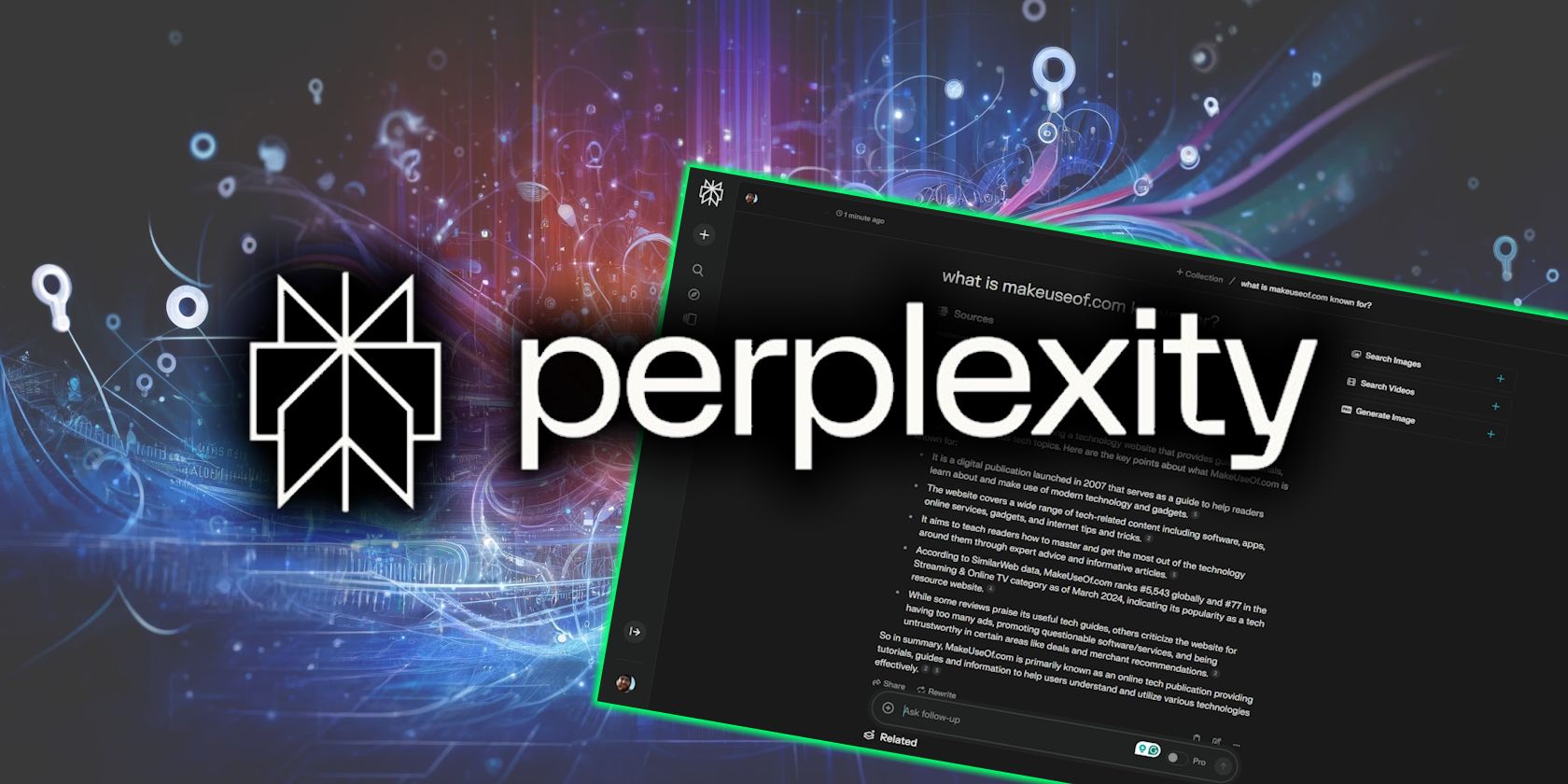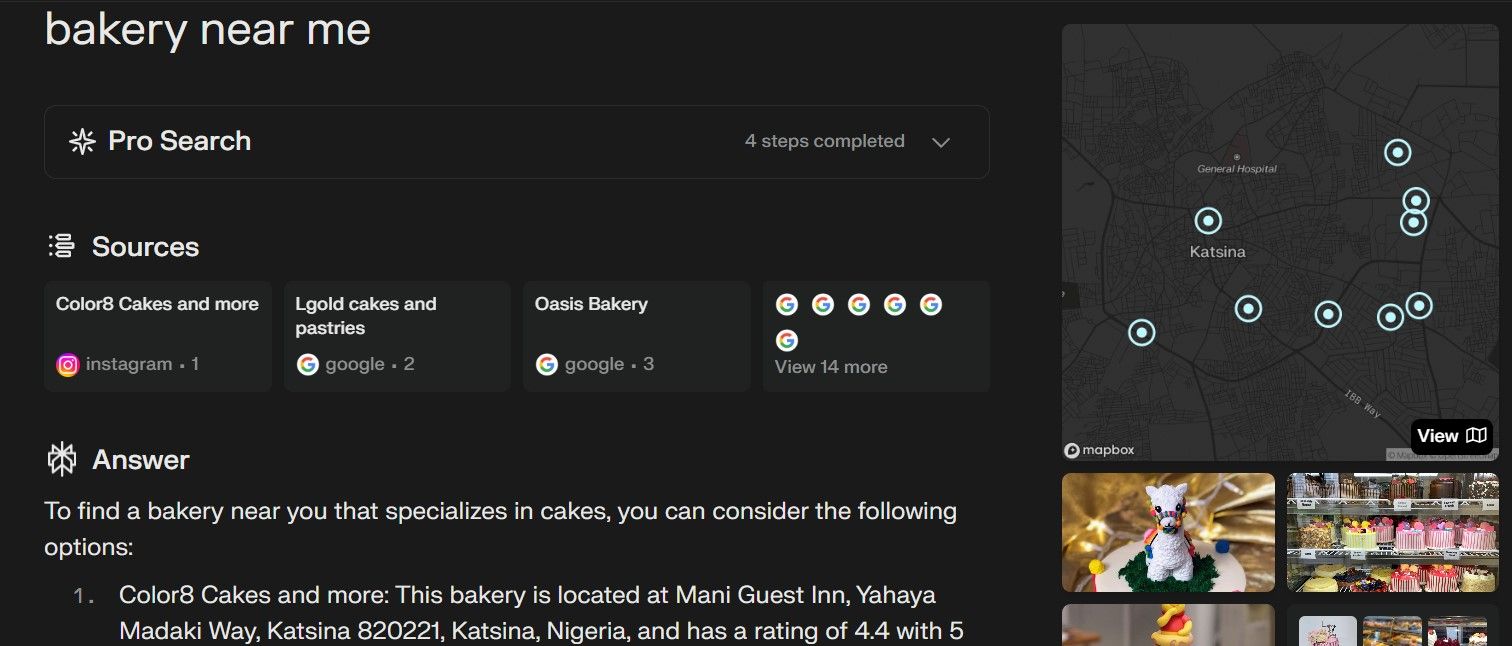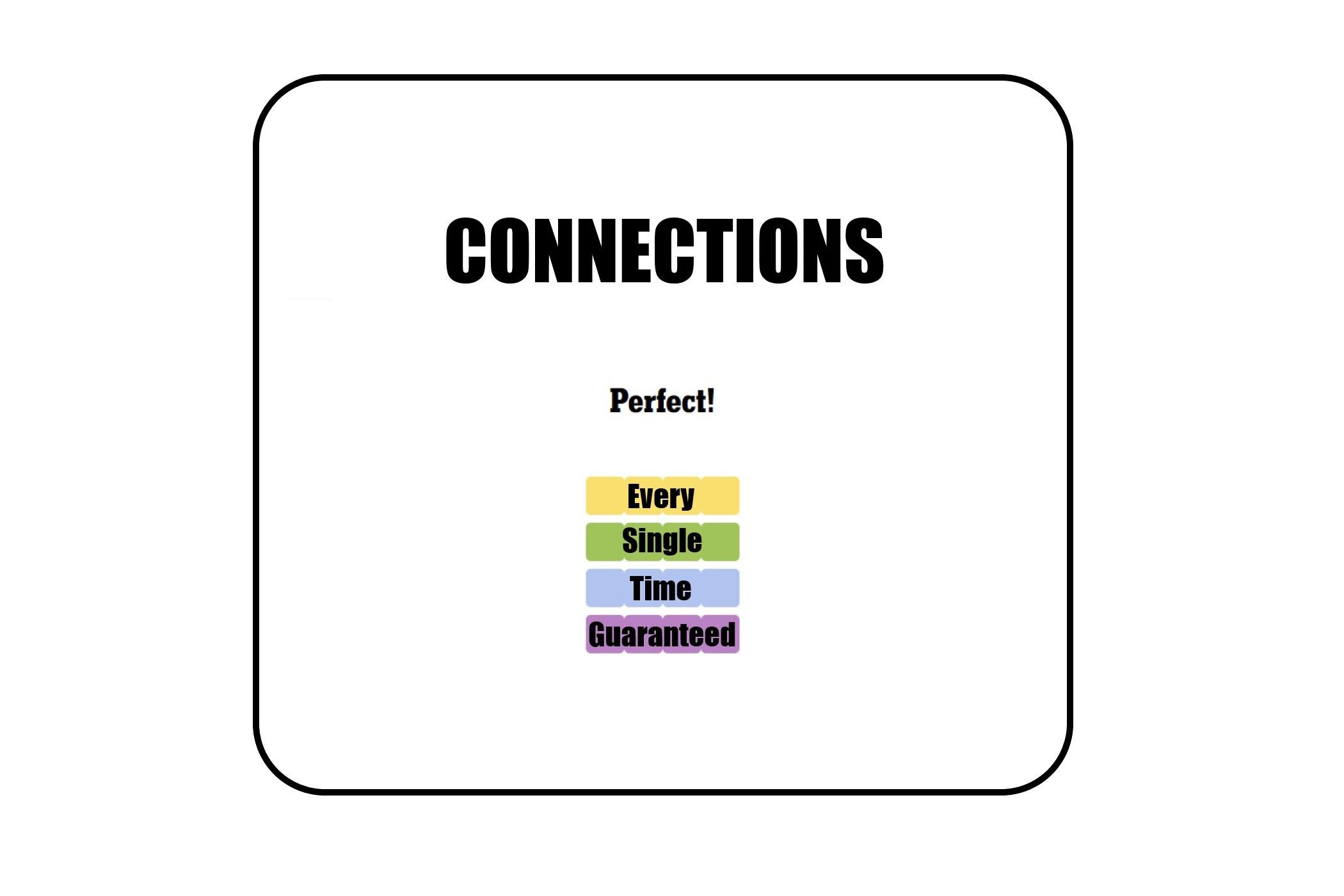Perplexity AI has caught the attention of tech leaders and users alike. From being backed by Jeff Bezos to being used “almost every day” by Nvidia CEO Jensen Huang, Perplexity AI fits the bill of an app that could change how we search.
But what is Perplexity AI really about, and can you use it instead of Google?
What Is Perplexity AI, and What Can You Do With It?
Perplexity AI is a conversational search engine that uses natural language text to answer questions. It was founded in 2022 by a quartet of former AI researchers from OpenAI and Meta: Aravind Srinivas, Andy Konwiski, Denis Yarats, and Johnny Ho.
Unlike traditional search engines that rely on keyword matching and link analysis, Perplexity AI understands the context and intent behind your queries. It provides not just a list of links but a comprehensive answer with links to cited sources.
The Perplexity app is a mix of the best features from ChatGPT and Google. It features a chat interface similar to ChatGPT’s and a Related section similar to Google’s People also ask.
How to Use Perplexity AI Instead of Google Search
Perplexity is intuitive and easy to use, and it’s available as a mobile app and a web version. You can explore the app, ask a few questions, and see how it works without signing up. However, if you see yourself using the app after your test, we’d recommend you sign up. That way, you can preserve your search history so you can always refer to it.
You can use Perplexity for a wide range of purposes, including research, professional development, and content creation. Perplexity AI is also perfect for answering those random questions that pop into your head, from “How to make a homemade kite?” and “Why do we stuff pillows with feathers?” to much more complex queries. It provides quick, reliable answers that satisfy your curiosity.
Perplexity is free to use. However, you can upgrade to its Pro plan ($20/month) for access to additional features, such as unlimited access to its more powerful AI models like OpenAI’s GPT-4, Anthropic’s Claude 3 Opus and Sonnet, and Mistral’s Large, plus support for images and files, and better support.
Can Perplexity AI Replace Google?
While Perplexity AI offers a unique value proposition, it’s not positioned to replace Google entirely. Google’s vast data infrastructure and established user base give it an advantage in many areas. Perplexity excels in providing AI overviews of user queries. However, it’s not effective for several other uses that Google has come to be known for, like weather forecasts and geo-sensitive queries.
For example, a search for “bakery near me” returned a “summary” of a list of bakeries. The interesting part? Not one from its list was within a 100-mile radius. The same query on Google returned options within a five-mile radius, which is absolutely what I wanted.
It’s worth noting that Google has been testing Search Generative Experience (SGE), an AI-assisted search feature. SGE provides AI overviews of search queries similar to Perplexity AI. Perplexity AI currently does a better job of answering queries thoroughly and also provides in-text citations for cross-referencing. However, this is something Google can replicate, if it becomes where the battle line is drawn.
Perplexity AI is reportedly working on bringing ads to its platform, per The Verge. How it executes its ad features will determine much of the platform’s future. Perplexity has a lot to prove (and improve!) to really stand up to Google.
Perplexity AI’s journey is one to watch, as it has the potential to carve out a significant niche in the search engine market. Its success will largely depend on how it integrates additional capabilities and responds to user feedback. Whether it will ever stand toe-to-toe with Google remains to be seen, but one thing is clear: Perplexity AI is a tool worth watching and, more importantly, using.






